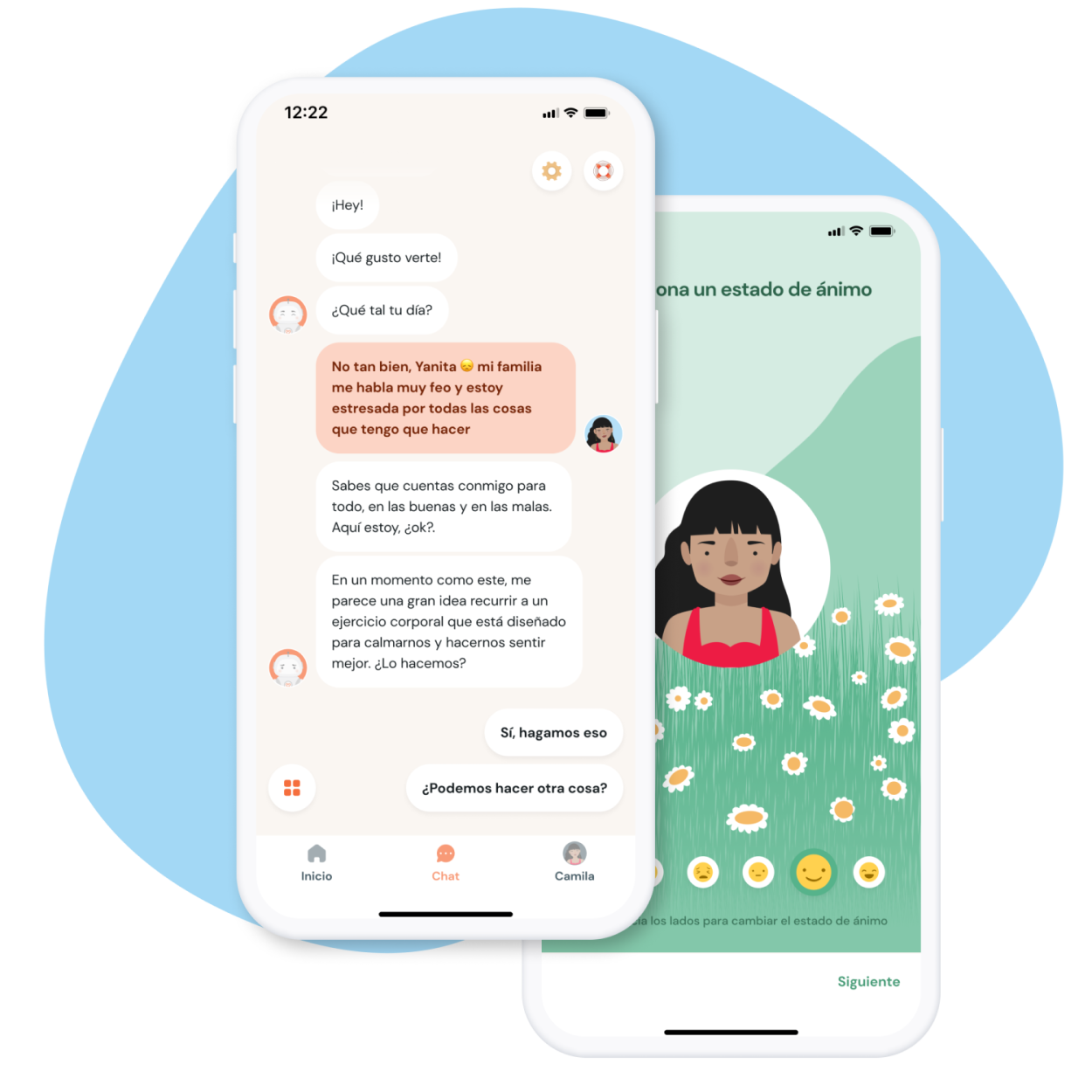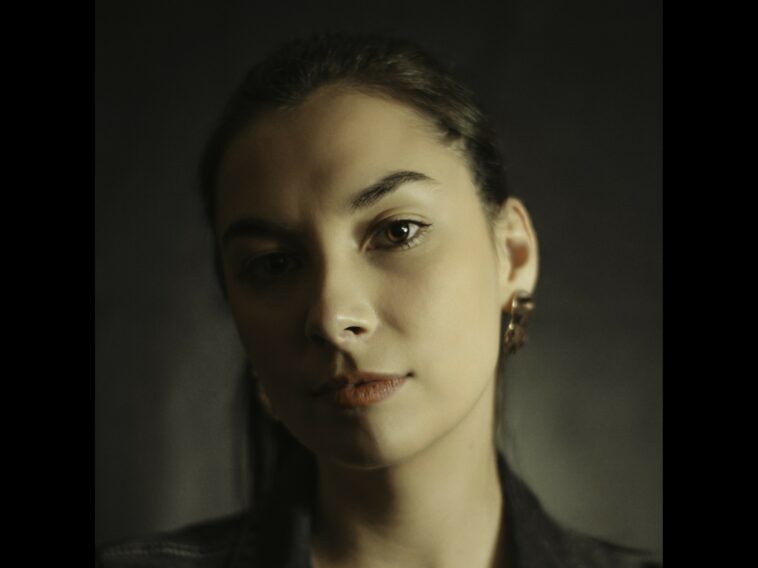This interview is brought to you by Startup Booster. Market your company with rapid, effective promotion across startup and business blogs.
Name: Andrea Campos
Company: Yana

What are you building, and who benefits most from it?
At Yana, we are building a transformative mental health app that combines technology with evidence-based psychology (cognitive behavioral therapy, in particular). Featuring a smart, friendly, and non-judgmental chatbot (Yana), our solution empowers individuals in their daily emotion management.
The main problem we are solving is people’s lack of the basic education needed to deal with the day-to-day challenges they face in life. Due to this lack of education, people look to solve their problems through non-professional help that, although accessible or free, ends up not being enough. They often end up feeling unheard, misunderstood, unsafe, and judged. These day-to-day problems get aggravated and accumulate until they get out of hand and a depressive or anxiety episode occurs.
At Yana, we believe that a very high percentage of people could successfully navigate most of their problems by themselves if they had that emotional education and worked on themselves continuously. We also believe that through day-to-day emotion management, we could dramatically reduce affective disorders in the world.
What is one of your startup’s most impressive accomplishments?
182 founders interviewed so far. Get interviewed in 10 minutes, via a simple form, for free.
I believe one of our most impressive achievements is reaching over 12 million users entirely through organic growth. To date, we have not spent a single dollar on marketing; it has been the love and support of our users that has propelled Yana to success.
This grassroots advocacy resulted in Yana becoming at a certain point in 2021 the most downloaded app in more than 12 Spanish-speaking countries, surpassing popular platforms such as TikTok, Twitter, and Facebook. Witnessing a mental health app eclipse social media and entertainment platforms has been truly inspiring, not just for our company but for the entire industry.
What has been the biggest challenge so far, and how did you overcome it?
One of the major hurdles we faced was overcoming the challenges associated with integrating AI into our chatbot. From the very inception of Yana, I’ve had genuine concerns about incorporating AI into the app, primarily due to the fear of it delivering incorrect or unempathetic responses to our users, who are often in a very vulnerable state when they reach out to us. It has always been crucial for us to ensure their well-being and provide an extremely safe yet “predictable” experience (due to the lack of AI).
While Yana has been successful in fostering incredible connections with humans, there was always a sense that something was missing, a feeling of being “scripted,” and I believed that addressing this issue would require navigating through it for a while until technology had advanced enough to meet our unique needs.
However, with the recent launch of OpenAI’s GPT-3, a world of possibilities unexpectedly opened up for us much sooner than anticipated. Since then, we have been diligently conducting comprehensive analyses to understand how we can leverage this technology while maintaining the safe and supportive space we have cultivated since our launch.
I take great pride in sharing that we have worked tirelessly to ensure our chatbot delivers accurate, compassionate, and, above all, SAFE responses through this new integration, which will be available to everyone in the near future. This development will empower our users to effectively manage their emotional well-being in ways we previously couldn’t achieve.
What tool or app could you not live without and why?
Notion. It is a dream come true for everyone obsessed with building a second brain.

What marketing strategies have worked for you?
I wouldn’t know what to say about marketing strategies since we don’t have a dedicated marketing department and have not allocated any budget for marketing, advertising, or SEO. Our growth has been primarily driven by the authentic experiences shared by our users on social media platforms, where they enthusiastically endorse and recommend Yana to others.
What we have observed is that when real people share their genuine experiences with our product, it resonates more deeply with others. There is a noticeable distinction between genuine user testimonials and paid influencer endorsements. People can easily recognize the authenticity and sincerity behind our users’ stories.
Given the positive response we have received organically, we intend to continue fostering this genuine approach for the foreseeable future. We believe that word-of-mouth recommendations from real people will continue to be an effective and powerful means of spreading awareness about Yana.
Can you share any financial data about your startup?
We’ve raised $2.9 million in total. Some of our partners are ALLVP, 500 Startups, Magma Partners and Hustle Fund. We are still in the pre-revenue stage. (Reported on July 04, 2023.)
What has been your biggest business failure to date? What did you learn from it?
One of our significant business setbacks involved initially underestimating the use of our app. We noticed a common trend where users would join, experience immediate improvement, and subsequently discontinue their usage. They’d say they no longer required it now that they felt better but would download it again whenever they experienced another hard moment.
This helped us come to the crucial realization that we needed to adopt a more comprehensive approach to ensure people see Yana as a place where they can work on themselves continuously instead of seeing it as a place where they can only come in times of distress. Mental health requires constant attention and effort, not just Band-Aids in difficult times.
By actively listening to user feedback and analyzing data insights, we gained a deeper understanding of the importance of continuous product enhancements, personalized experiences, and ongoing support. These insights have guided us in creating a more holistic and meaningful user journey, encouraging individuals to view self-care as an ongoing practice rather than a reactive solution.
This valuable lesson has allowed us to shift our focus toward user retention, enabling us to implement strategies that foster a sustainable and impactful user experience. We are committed to delivering ongoing improvements and providing the necessary tools and support to our users so they can actively manage their personal growth and emotional well-being.
What’s the best specific piece of advice you have for other entrepreneurs?
There is no one-size-fits-all path to success. Throughout my journey, I have encountered numerous naysayers who doubted my potential. Whether it was because I was a single founder, took my time to launch, or prioritized a cautious approach over reckless speed, I faced criticism and skepticism.
Many individuals may approach you with their magical formulas and insist that you must follow their prescribed path. However, it is important to remember that greatness can be reached through various routes. Do not let others discourage you simply because they choose to do things differently. Embrace your unique journey, stay true to your vision, and have confidence in the path you have chosen. Success comes in different forms, and by remaining steadfast in your beliefs and principles, you can forge your own path to greatness. Trust in your abilities, and don’t be swayed by those who try to impose their limitations or expectations upon you.
Want to be interviewed just like this? Fill out this simple form.



